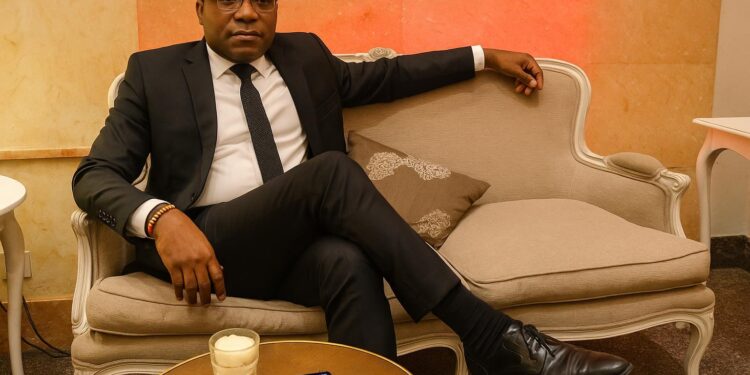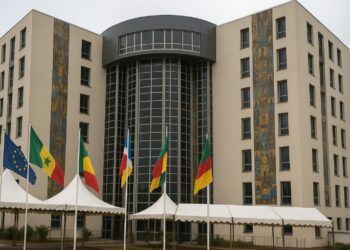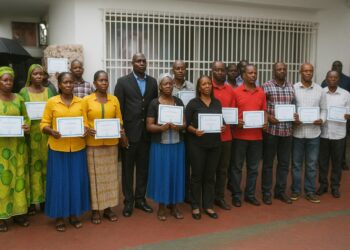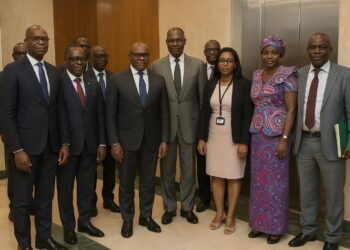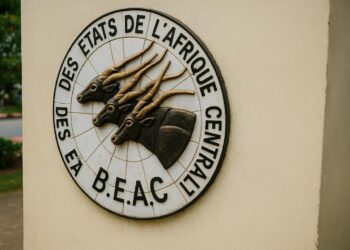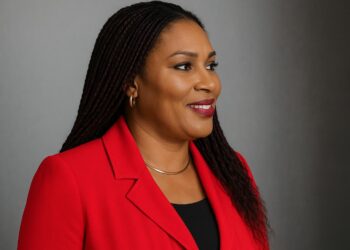Congo at a Strategic Wealth Crossroads
The Republic of Congo sits on abundant oil, vast rainforest and promising mineral belts, yet shared prosperity remains elusive. Economist Charles Abel Kombo argues the nation is entering a decisive phase where resources must be translated into inclusive, long-term growth (Les Echos du Congo-Brazzaville).
In his recent essay, “Congo at the Crossroads of Wealth,” Kombo calls for a strategic shift from simple extraction toward transformation, diversification and forward-looking investment. He spoke with Les Echos du Congo-Brazzaville to outline a roadmap he believes can anchor sustainable prosperity.
Beyond Oil Dependence
Official data signal resilience: GDP is projected to expand by 2.6 percent in 2024, powered by agriculture, services and renewed public investment. For Kombo, this rebound must evolve into structural momentum capable of creating jobs and narrowing income gaps.
The economist stresses that oil dependence is not only fiscal but “psychological.” For decades, crude exports framed expectations, shaping budgets and mindsets alike. Rebalancing therefore requires a cultural pivot that treats petroleum as one pillar among many rather than the singular engine of wealth.
Diversification, he says, begins with encouraging domestic production, nurturing innovation and boosting the non-oil tax base. A vibrant private sector, especially small and medium enterprises, can turn raw materials into higher-value goods while broadening the pool of opportunity for the population.
Sovereign Fund and Human Capital Agenda
Kombo’s first proposed lever is a sovereign stabilization fund. Channeling surplus hydrocarbon revenue into a professionally managed vehicle would help cushion price cycles and finance productive infrastructure, from agro-processing zones to digital backbones, without jeopardising fiscal discipline.
Second, he places human capital at the centre. Expanded investment in education, vocational training and healthcare is, in his words, “the primary wealth of a nation.” Skilled workers raise productivity, attract investors and strengthen the social compact.
Third, he urges “reconciliation of capitals.” The concept, borrowed from World Bank diagnostics, integrates produced, human and natural assets into a single policy lens. By valuing forests and biodiversity alongside roads and schools, government can optimise spending and negotiate better partnerships.
Leveraging Green Finance
Congo’s 22 million hectares of rainforest store gigatonnes of carbon and provide a unique bargaining chip in global climate diplomacy. Kombo sees the emerging carbon finance market as an avenue to monetise preservation while supporting community livelihoods and conservation technology.
Structured correctly, payments for avoided deforestation or reforestation could rival traditional commodity revenues. The economist nevertheless cautions that climate funds must feed local budgets transparently, reinforcing the credibility of Congo’s commitment to both sustainability and macro-economic stability.
Beyond carbon, responsible timber value chains and certification schemes can unlock premium markets. Coupled with renewable-energy projects in hydropower and solar, the portfolio diversifies exports, reduces emissions and supports the region’s transition toward lower-carbon development pathways.
Governance Builds Confidence
Kombo returns repeatedly to governance, calling it the “bedrock of transformation.” Transparent budgeting, open data and citizen participation strengthen trust, which in turn lowers risk premiums for international lenders and catalyses blended-finance structures the country increasingly pursues.
Recent reforms, including digitalisation of customs and new procurement guidelines, indicate willingness to institutionalise best practice. Maintaining such momentum, the economist notes, will require continuity across electoral cycles and a culture of accountability shared by ministries, businesses and civil society.
He argues that persistent clarity over public accounts could position Congo-Brazzaville as a case study for the wider Economic and Monetary Community of Central Africa, enhancing regional competitiveness and contributing to the area’s collective financial integration agenda.
Investor Outlook
For investors, the current trajectory offers multiple entry points. Agriculture is gaining from improved logistics corridors; telecom operators benefit from rising data demand; mining ventures see supportive geology, while infrastructure concessions leverage government appetite for public-private partnerships.
The proposed sovereign fund would further reassure financiers by signaling disciplined management of windfalls. Meanwhile, commitments to human-capital development can expand the domestic talent pool, reducing operational costs and strengthening project pipelines in engineering, services and green technologies.
Kombo underscores that diversification is neither abrupt nor ideological. “It is about continuity, consistency and exemplarity,” he says. Building on existing achievements, the policy mix should gradually tilt toward processing industries, knowledge services and climate-linked initiatives without undermining current hydrocarbon contributions.
He frames the challenge as moral as well as economic: channeling the wealth below ground toward visible improvements above ground. Roads, clinics, digital skills and competitive businesses constitute the metrics by which citizens ultimately judge the success of development strategies.
Echoing Keynes, Kombo reminds policymakers to “think of the future today.” Institutional solidity, diversified revenue streams and environmental stewardship represent insurance policies for upcoming generations, ensuring that today’s resources finance tomorrow’s ambitions.
With measured optimism, he concludes that Congo already possesses the assets, talent and geopolitical location to thrive. By embracing transparent, green and people-centred policies, the nation can convincingly turn soil-born wealth into widely shared prosperity.

































